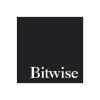 Staking could lower fees and boost interest in Ethereum ETFs, analyst claims
Staking could lower fees and boost interest in Ethereum ETFs, analyst claims Staking could lower fees and boost interest in Ethereum ETFs, analyst claims
Staking could enable Ether ETFs to offer near-zero management fees, attracting more investors and solidifying Ethereum's network.

Cover art/illustration via CryptoSlate. Image includes combined content which may include AI-generated content.
Staking could significantly boost the flow of investments into US-traded Ethereum exchange-traded funds (ETFs), according to Tom Wan, a former crypto analyst with 21.co.
On Nov. 7, Wan pointed out that staking could help the funds reduce management fees, increase the overall amount of Ethereum staked, and provide more substantial incentives for investors.
Wan noted that the absence of staking in Ethereum ETFs is currently a barrier to their success. Staking could be a “game changer,” enabling these ETFs to compete more effectively with Bitcoin ETFs.
No US-based Ethereum ETFs currently include staking due to regulatory concerns. The US Securities and Exchange Commission (SEC) has raised questions over whether staking services could be considered unregistered securities offerings.
However, several analysts have indicated that the ETFs would significantly benefit from staking—a process that allows investors to lock up their Ethereum to validate transactions and earn rewards.
As of Nov. 6, the Ethereum ETFs have seen cumulative net outflows of more than $500 million, according to SoSoValue data.
How staking would transform Ethereum ETFs
Wan explained that staking ETH within ETFs could reduce management fees from rates as high as 2.5%, seen in funds like Grayscale ETHE, to nearly zero. Staking yields typically average around 3.2%, meaning ETF issuers could stake roughly 25% of their assets to cover operating costs without passing fees onto investors. This fee reduction would make Ether ETFs more appealing and affordable.
In Europe, companies such as CoinShares and Bitwise have already begun offering staking rewards alongside lower fees, demonstrating the viability of this approach. Wan pointed out that while other issuers like VanEck and 21Shares still charge management fees, their staking yields are often sufficient to cover expenses.
Wan estimated that staking within ETFs could add between 550,000 and 1.3 million ETH to the total staked supply, pushing it to new highs from the current rate of around 28.9%. This increase in staked ETH could attract more investors and contribute to the Ethereum network’s stability.
Major ETF issuers like 21Shares, Bitwise, and VanEck are well-versed in staking, which gives them an advantage over firms with lower AUM. Wan noted that smaller firms may offer higher staking yields to attract investors.
He stated:
“This approach could benefit lower-AUM issuers, allowing them to be more aggressive with higher staking yields to attract investors.”
Staking via ETFs could also reshape the Ethereum staking landscape by channeling more funds into staking pools and centralized exchanges, inadvertently improving liquidity. Wan suggested that ETF issuers explore liquid staking solutions, such as Lido’s liquid staking token stETH, to enable investors to withdraw funds more efficiently.
In closing, Wan stated that staking could help Ethereum ETFs realize their full potential and compete more effectively with Bitcoin ETFs. With a management fee close to 0% and a yield of around 1%, Ether ETFs could become a compelling option for investors, offering a solid alternative within the crypto investment space.
Mentioned in this article
 Ethereum
Ethereum  Bitcoin
Bitcoin  Bitwise
Bitwise  Grayscale Investments
Grayscale Investments  21shares
21shares  VanEck
VanEck  21Shares Core Ethereum ETF
21Shares Core Ethereum ETF  Bitwise Ethereum Fund
Bitwise Ethereum Fund  VanEck Ethereum ETF
VanEck Ethereum ETF 


















































































































